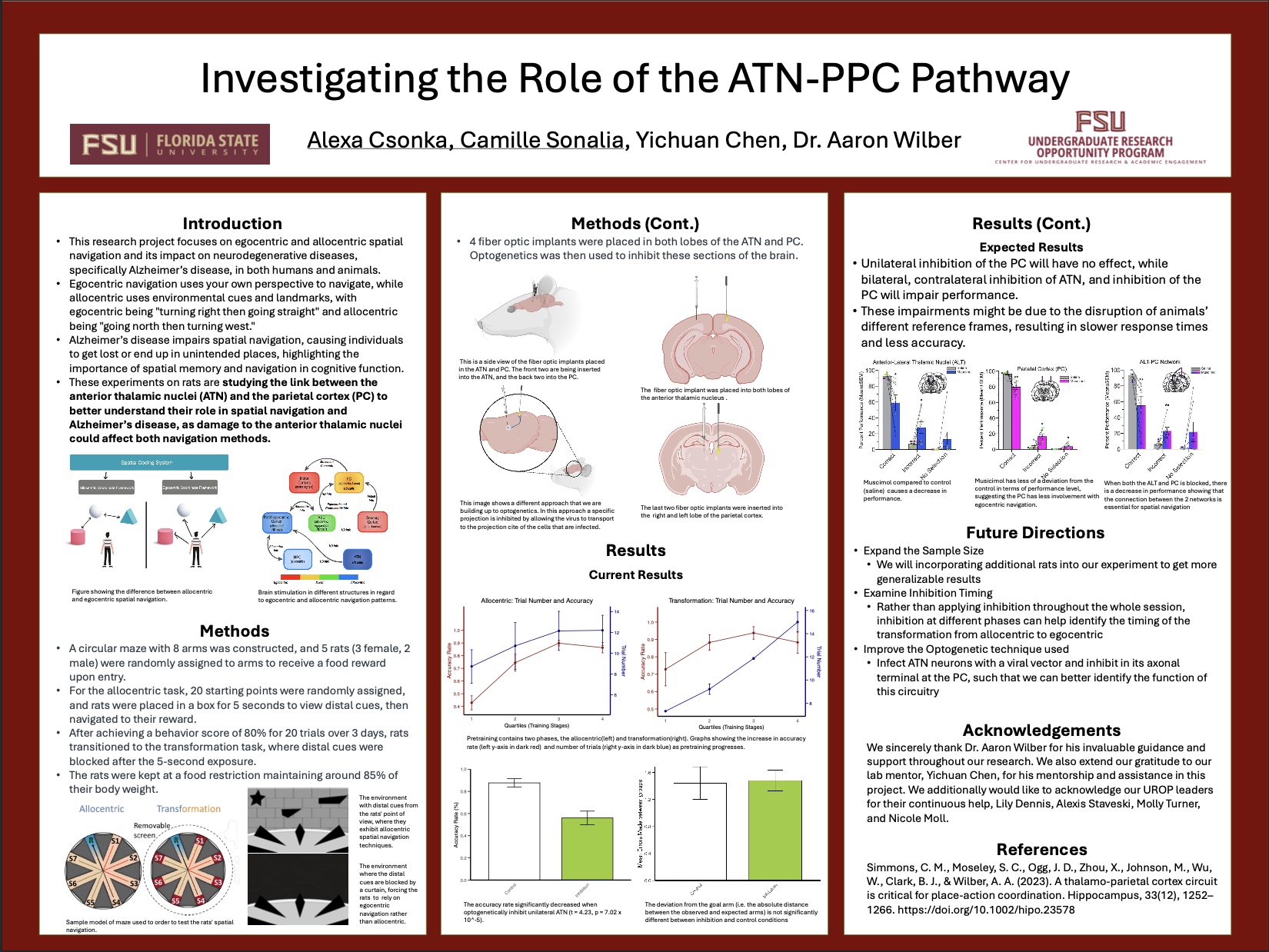Research Symposium
25th annual Undergraduate Research Symposium, April 1, 2025
Alexa Csonka Poster Session 3: 1:45 pm - 2:45 pm/ Poster #57

BIO
Alexa Csonka is a first-year Behavioral Neuroscience major and pre-medical student from Miami, FL. She is currently working in the Wilber Lab focusing on spatial orientation, specifically the ATN-PPC pathway.
Investigating the Role of the ATN-PPC Pathway
Authors: Alexa Csonka, Yinchuan ChenStudent Major: Behavioral Neuroscience
Mentor: Yinchuan Chen
Mentor's Department: Psychology Department Mentor's College: College of Arts and Sciences Co-Presenters: Camille Sonalia
Abstract
Spatial navigation is the ability of animals to find a path between locations, essential for survival. It requires sensory integration, processing, and route planning, relying on different brain regions. Previous research highlights the roles of the anterior thalamic nuclei (ATN) and posterior parietal cortex (PPC) in spatial navigation. The ATN contains head direction cells, neurons active when the animal’s head points in a specific direction (Taube, 1995). This stable firing pattern helps determine object positions during navigation. The PPC contains both head direction and egocentric cells, which activate for specific movements, making it essential for route planning (Wilber et al., 2014). Despite their distinct roles, ATN-PPC network collaboration remains understudied. Using optogenetic inhibition, we examine how silencing ATN, PPC, and their network affects performance in a map-to-action task (MATT). We hypothesize that ATN silencing will reduce accuracy, PPC silencing will decrease responsiveness, and ATN-PPC silencing will cause both impairments. Four rats were trained, and preliminary results suggest ATN inhibition impairs accuracy.
Keywords: Spatial Orientation, Neuroscience

